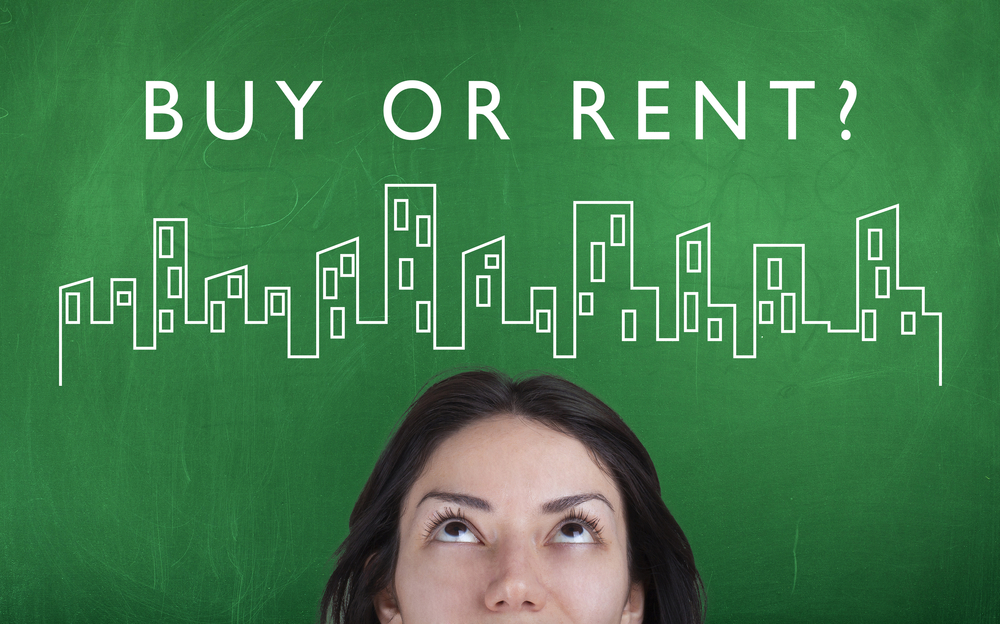Top 5 Reasons Owning a Home is More Expensive than Renting

According to research from The Ascent, in 2019, homeowners spent an average of $26,418 per year in housing costs, while renters forked up $17,809 a year. Homeowners must spend an additional $8,609 a year according to the data. Homeowners typically have expenses that renter’s don’t have to cover at all or are less expensive for renters (insurance would be a good example). Here are a few examples of why owning a home is more expensive than renting.
Initial costs are always more expensive
In almost all cases, the upfront costs of owning a home are much higher than renting an apartment or house. When you lease a new rental, you will typically have to cover first and last month’s rent as well a security deposit. Some landlords may require a cleaning fee as well. In addition, there may be a few expenses once you move in, you may need window coverings, a new shower head as well as the cost of some cleaning supplies.
The upfront costs of purchasing a home are usually much much higher. The largest expense is the down payment necessary to get a mortgage. According to the National Association of Realtors, in 2022, the median down payment for a home buyer was 13% of the home’s purchase price. In addition, you may need to cover other closing costs, which often run between 2% and 5% of the home’s purchase price.
Insurance is more expensive
Renters insurance is usually a bargain in the world of insurance and if you are renting an apartment or home, you should absolutely be carrying this coverage. Renters insurance will cover the cost to replace your personal possessions if they are damaged or destroyed by a covered peril. It also offers liability coverage if someone is injured in your rental.
According to Progressive, the average cost of renters insurance is only $14 to $30 per month, which when compared to homeowners insurance is a real bargain.
Insurance for homeowners is dramatically more expensive in most cases. This is due to the fact that the insurer may have to rebuild your entire home if it is damaged or destroyed by a covered peril. It also offers liability coverage, as well as protection for other buildings on your property. In 2020, the average cost for homeowners insurance across the nation ran $2,305 which translates into $192.08 per month.
Insurance costs can vary dramatically depending on where your home is located as well as other factors.
Property taxes
If you are a renter, property taxes fall to your landlord, so they are not a factor for you. However, if you are a homeowner, property taxes can be a major expense and, in many cases, this cost will rise the longer you live in the home. As property values increase, so do property taxes. When shopping for a home always factor in the cost of property taxes into your budget.
Repairs and maintenance are your expensive
Renters have the luxury of calling their landlord whenever something breaks in their home and yearly maintenance also falls to the landlord. Homeowners are not so lucky, any repairs (unless covered by insurance) and maintenance costs will fall to the homeowner. This means when your furnace breaks down or your gutters need cleaning out you will have to do the work yourself or pay a professional.
Utility costs often more expensive
In most cases, the cost of utilities will be lower in an apartment compared to a home. Utility costs can often be a bit of a surprise for first time homeowners so if you are shopping for a new home always factor in the cost of utilities when setting a budget.
